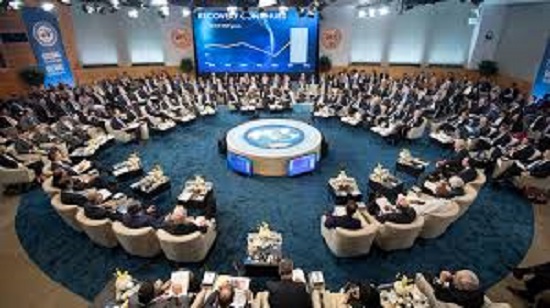By Adefolarin A. Olamilekan
Lately, we have been inundated with less than cheering news of possible third wave of COVID-19 in Nigeria. This comes on the heels of what is happening in some sub-Saharan African countries with the New Delta variant peaked in South Africa (83%), Zambia (92%), Tunisia (98%) and Namibia (100%).The Nigerian state in response appears to be mindful re-introduced restriction target at preventing a surge of the COVID-19 pandemic in the country. Consequently, the Nigerian authorities through the Presidential Task Force (PTF) and the National Primary Health Care Development Agency (NPHCDA) alongside the Presidential Steering Committee (PSC) took delivery of 3.92 million doses of the Oxford-AstraZeneca COVID-19 vaccine through the COVAX facility.
According, to Thomas Reuters Global COVID-19 vaccination tracking portals as at June 302021 3.4 million doses of vaccine have been administered in Nigeria. Interestingly, two dosages are required by each person’s to be fortified against the virus. Yet, infection cases is 169, 000 as at the end the first and second wave, with death toll reaching 2, 214, and 164,000 recoveries so far.
What is more is the fear of third wave of the corona virus and discovery of the New Delta Variant spread is worrisome and this dread could compound the third wave in sub Sahara Africa countries. Chiefly, with global scarcity of COVID-19 vaccine arising from high demand from western countries. In the meantime, grueling questions have been asked if the Oxford-AstraZeneca of the US AND UK, the Russian Sputnik-V, the Chinese Sinovac, Sinopharm, Cansino and Biologics vaccine rollout would help immunized against the New Delta strain now in ninety-six country.
The International Monetary Fund (IMF) recently released a report title” Sub-Saharan Africa: We Need to Act Now”. The Bretton Woods institution expressed great concerns on some pertinent issues on what could reversed the gain so far recorded in Nigeria’s economic recovery in face of the COVID-19 pandemic. Off course, in recent time the effective entry of the countries of the Pacific Rim into the Bretton Woods system, though it has its own negative consequence. Pacific Rim countries have become a new force to reckon with in the multilateral financial institution going by their huge foreign reserves. Significantly, it is measure of this rising international financial status of formally harassed and harangued countries to minimize the role of their state in their economies that IMF co desperately engages them.
In the face of massive empirical envidence, the IMF report showed the level of increased in the infection in third wave of COVID-19 in sub-Sahara Africa than anywhere in the world. Grippingly, IMF analyzed data on vaccinated persons in sub-Sahara Africa showed that in every 100 only one adult is fully vaccinated compared to an average of over 30 adults in every 100 in advanced countries. The IMF report considerably, was more concerned about the Nigerian situation, reporting that Nigeria with the largest population in sub-Saharan Africa countries vaccination story is not any way better than other SSAC .For instatnce, only 1.7 million Nigerians so far received the two doses representing a paltry 0.8% per cent of the current population of 208million.
Besides, the IMF also reported that available supply of vaccines globally has been bought over by the advanced economies for there citizens. The report was more centered on the implications that could be imminent if urgent steps were not taken.”The cost of allowing a third wave of the pandemic may take the country back into recession in the coming quarters if taken for granted “the report read.
The above warning is very instructive, if we recalled that the estimated economic loss arising from the disruption from COVID-19 stood at N3 trillion, with Gross Domestic Product (GDP) contracting by 1.9% per cent in 2020. Regrettably, the level of inflation in the economy is scourging with crushing food price upsurge that Nigerians on daily basis battle with.
Understandanbly, the Nigerian economic recession partly is as result of COVID-19 pandemic and incidence of price shock on the crude oil in the international market. Interestingly, the advance effects of the pandemic on global economic negatively impacted the Nigerian oil sector been the prime factor of revenue for the Nigerian state. In the year 2020 the oil sector contribution to aggregate real GDP growth rate was 9.5% per cent in 2020.This was a blow on the health of the Nigerian economy pattern revealing a critical draw back on both fiscal and monetary policies.
Obviously, it clear to articulate the ideological direction of the Nigerian economy going by the prevailing situation and concerns from IMF.IMF interest as a fundamental theology of market forces of neo-liberal orthodoxy fostering unilateral structural adjustment prescription is been resisted ,especially with Chinese in road into Sub-Sahara Africa with acceptable loan deals.Critically,we can grasp the import of the report by IMF and what underpins there interest in sub-Sahara Africa.Nonetheless,IMF should be commended for the report time intervention, most especially as the New Delta Variant as been discover in Oyo state now.
However, it is not contestable that given the structural challenges of the Nigerian economy ranging from infrastructures paucity to the nation’s high import addiction foremost to huge naira abysmal depreciation and interruption of primary, secondary and tertiary production. Particularly, as the economy has struggle between two recessions in six years of the APC lead Buhari administration.
Nevertheless, the Nigerian economy today remains on the self-propelling GDP growth from the oil sector masking the low performance of other sector of the economy. Possibly, the Nigerian state must be proactively balanced the fiscal and monetary policies as derivatives to ensure the economy remains steady in the face of probable third wave of covid-19 and beyond.

Leave a Reply